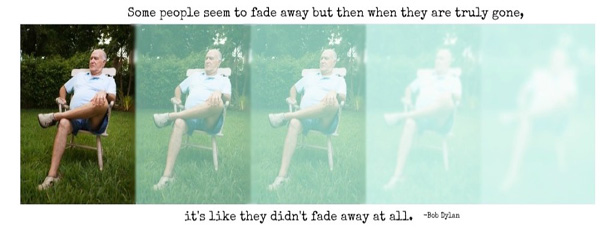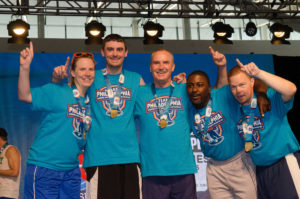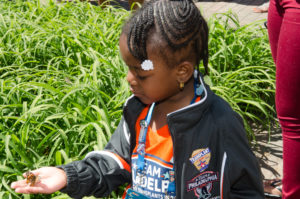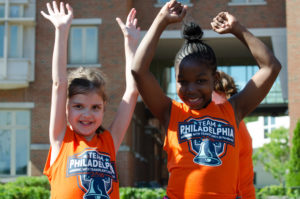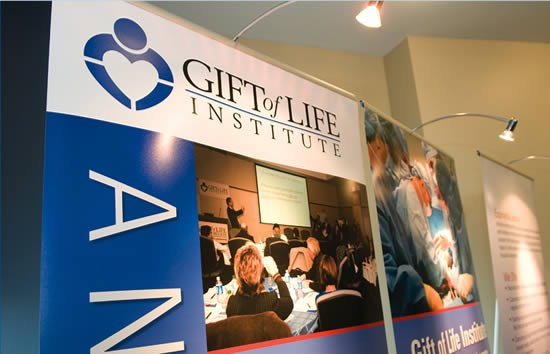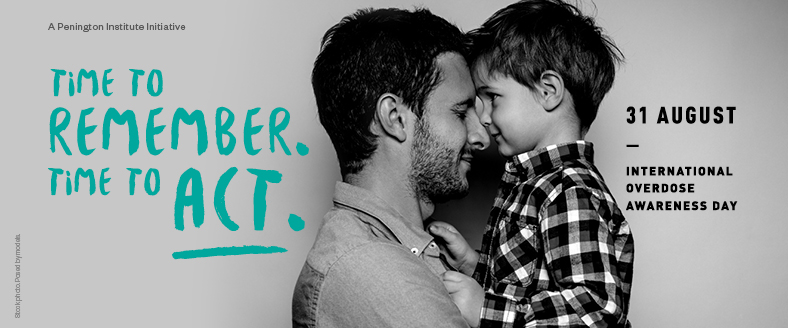
As we recognize International Overdose Awareness Day (August 31) and National Recovery Month (September), it is important to remember that how a person dies does not define the person’s life or character, nor does it diminish the suffering experienced by those left behind. Despite increased awareness of its widespread impact, both mental illness and addiction remain stigmatized throughout our society. As a result, grief associated with losing a loved one may be compounded when death ensues as a result of addiction.
Addiction is comprised of an entire series of losses that begin before the death. Often, the losses start when the individual first succumbs to substance abuse. Friends and family watch helplessly as the person they know and love transitions into someone completely unfamiliar. New undesirable behaviors, interests, and people enter into focus. Plans and expectations for the future no longer seem feasible. Trust may be challenged and likely broken. The dynamics of the relationship change or dissolve completely. Although the person in the throes of addiction is still physically present, friends and family may find themselves mourning the person they once were. It may feel strange to grieve someone who is still alive, but the associated emotions are real and valid. This common, yet confusing, experience has a name – ambiguous loss.
Family and friends often feel powerless when their loved one is under the control of addiction. They begin to prepare themselves and accept that this may invariably end poorly. Each of their loved one’s absences from a social gathering is a reminder of their potential void. Every time the phone rings, friends and family flinch and wonder if this is “the call”. The process of expecting the loss of a loved one is known as anticipatory grief. Many of the emotions of anticipatory grief (e.g., sadness, anxiousness, anger, regret) are the same feelings one may experience after a loss. Watching someone suffer through the illness of addiction while adjusting to the reality of losing them is exhausting. Often there is a sense of relief when the death actually occurs. Although this relief may seem wrong and may trigger feelings of guilt, this experience is quite common. It’s important to remember that this relief does not minimize the love for the person who died.
Surviving loved ones often feel as though their loss and grief is disenfranchised. Disenfranchised loss may arise when the circumstances of the death are stigmatized or possess negative connotations. Survivors may feel like they don’t have the right to grieve because society’s message is that their loved one’s death was preventable, shameful, or their own fault. They may feel as though they cannot openly mourn due to the constraints of “societal rules’ and keep their grief hidden. They may feel embarrassed or ashamed as they internalize cultural beliefs around addiction. But it is imperative to remember that no one has the authority to dictate who, how, what, when, or why we grieve. And as we recognize National Recovery Month, it is also important to remember that addiction is not a choice, it is a disease.
Jacqui Kates, LCSW, CT is a Licensed Clinical Social Worker in Pennsylvania, a Certified Thanatologist (expertise in death, dying and bereavement), and former Family Support Services Counselor at Gift of Life Donor Program.
The Transplant Games of America are elusive to most yet significant to many: a week-long extravaganza that closely mirrors the world’s beloved Olympic Games. And, like the Olympics, opening ceremonies provide an emotional recognition of the unity and shared experience of everyone present. Intense competition transpires on the courts, fields, pools, and halls as participants strive to bring home the most medals. The stands are completely occupied by exuberant fans decked out in their team’s gear. Workshops, coffee houses, quilt displays and vendors offer a break among the rivalry.
Yet, these games differ quite drastically from the Olympics in several substantial ways. The participants are not world class athletes, but individuals who have been given a second chance of life through transplantation. The passionate crowds in the stands are not your typical spectators either; they are donor families honoring their loved ones’ memory, living donors, Transplant Centers, Organ Procurement Organizations, and all the incredible people who comprise the support system of the transplantation community.
The competition is an obvious testament to the success of transplantation. It is quite striking to step back and consider that the athletes once connected to the more than 100,000 on the waiting list are now able to shoot hoops, swim laps, and swing a racket because of the compassion of another. Although recipients summon their athletic prowess partially to bring home the gold, their primary intent is to demonstrate their appreciation for this second chance and to honor their heroic donors.
Donor Families & Recipients
The Transplant Games provide a different experience for donor families. Observing healthy recipients exuding zeal for life allows for the presence of positive feelings around the tragedy of their loved ones’ death. Donor families are invited to participate in many special events, including a tribute ceremony and a butterfly release. Numerous workshops are offered with topics pertinent to loss and bereavement. Families have the opportunity to create and pin a quilt square in honor of their loved one. The atmosphere at the Games is supportive and safe; a space where donor families may openly express their grief and share their stories. The life and legacy of the donor is omnipresent.
The unique beauty of the Games lies within the interactions between the donor families and recipients. Although the media often normalizes and sensationalizes meetings between the two parties, it is actually quite an uncommon occurrence. Many donor families never meet or even receive correspondence from their loved one’s recipients and vice-versa. However, at the Transplant Games, each recipient identifies every donor family as their own. Countless hugs and thank you(s) are exchanged throughout the week. Medals earned rarely remain long on the necks of the athlete as they are soon gifted to the closest donor family member. The boundaries of team loyalty do not exist here, the appreciation and awe is palpable from all.
A Personal Observation
Accompanying Team Philadelphia for five days in San Diego, CA for the Games was an unforgettable and profound experience. Our team wonderfully represented the Transplant Foundation in our vibrant uniforms and proudly celebrated our donors. Together we conquered the games and proved that transplantation works. We hope that our efforts in San Diego will demonstrate the importance of organ and tissue donation and that we adequately honored our donors and their families who altruistically gave the gift of life.
For additional information about the Transplant Games, visit: http://www.transplantgamesofamerica.org/
Name, is a Title at Gift of Life Donor Program in Philadelphia, PA

